In Objective-C, I have a completion block class defined as:
File.h
typedef void (^MYCompletionBlock)(BOOL success, NSDictionary *result, NSError *error);
Then, in a Swift file, I try to use the completion block as follows:
Swift.swift
class MyClass: NSObject{
...
func MyFunction() -> Void {
...
objcMethod(param1, withCompletion: {(MYCompletionBlock) -> Void in
if (success){ // Error:"Use of unresolved identifier 'success'"
}
}
...
}
...
}
But, I keep getting an error: "Use of unresolved identifier 'success'".
I've tried the following as well:
objcMethod(param1, withCompletion: {(success:Bool, result: NSDictionary, error:NSError) -> Void in
if (success){ // Error:"Cannot convert value of type '(Bool, NSDictionary, NSError) -> Void' to expected argument type "MYCompletionBlock!"
}
}
Can somebody help me understand how to correctly specify a Obj-C completion block in Swift?

